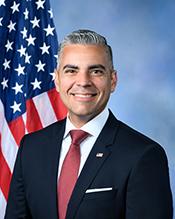H.R. 4573: Innovate to Save Lives Act
This bill, titled the Innovate to Save Lives Act, seeks to amend the Internal Revenue Code to provide a financial incentive for small businesses engaged in research related to mitigating specific drug threats. Here’s a breakdown of its key provisions:
Purpose of the Bill
The primary intention of the bill is to assist small businesses by offering a tax credit. This credit is aimed at encouraging them to conduct research that focuses on mitigating or treating the impacts of certain drugs, particularly those associated with increasing drug abuse and overdose rates.
Tax Credit for Small Businesses
The bill introduces a tax credit equal to 10% of "qualified drug threat mitigation research expenses" that small businesses incur. This addition to the tax code is designed to alleviate some of the financial burdens related to research and development in the specified drug areas. The new section proposed under the tax code details the provisions for this credit as follows:
- Who Qualifies: The tax credit is specifically targeted at small businesses, which are defined according to existing criteria in the tax code.
- Research Focus: The research must relate to drugs designated as emerging threats, such as fentanyl, fentanyl-related substances, or methamphetamine. It can also include research aimed at preventing, diverting, or intervening in the use of these drugs.
Definitions
The bill also establishes specific definitions within the context of the tax code to clarify what constitutes "qualified drug threat mitigation research expenses" and outlines the criteria for what drugs are considered under this initiative:
- Qualified Drug Threat Mitigation Research Expenses: These expenses are defined as research costs that would normally qualify as research expenses but must specifically focus on the drugs identified in the legislation.
- Specified Drugs: The specified drugs include any emerging drug threats, fentanyl, and methamphetamine, among others. The bill also refers to the definitions provided in current drug policy legislation.
Exclusions
The bill specifies that clinical research is generally excluded unless it adheres to the clinical research guidelines set by the National Institutes of Health, emphasizing the need for reputable practices in any funded research.
Implementation Timeline
The tax credit provisions will take effect for taxable years that begin after the bill is enacted, providing small businesses the ability to leverage these credits in their upcoming fiscal planning.
Reporting Requirements
Five years after the bill's enactment, a report is mandated to be submitted to Congress by the Comptroller General. This report will detail the amount of tax credits utilized for qualified research and categorize the types of related research conducted. Importantly, the report is required to maintain the anonymity of the data involved in the studies.
Relevant Companies
- None found
This is an AI-generated summary of the bill text. There may be mistakes.
Sponsors
6 bill sponsors
Actions
2 actions
| Date | Action |
|---|---|
| Jul. 21, 2025 | Introduced in House |
| Jul. 21, 2025 | Referred to the House Committee on Ways and Means. |
Corporate Lobbying
0 companies lobbying
None found.
* Note that there can be significant delays in lobbying disclosures, and our data may be incomplete.
Potentially Relevant Congressional Stock Trades
No relevant congressional stock trades found.





